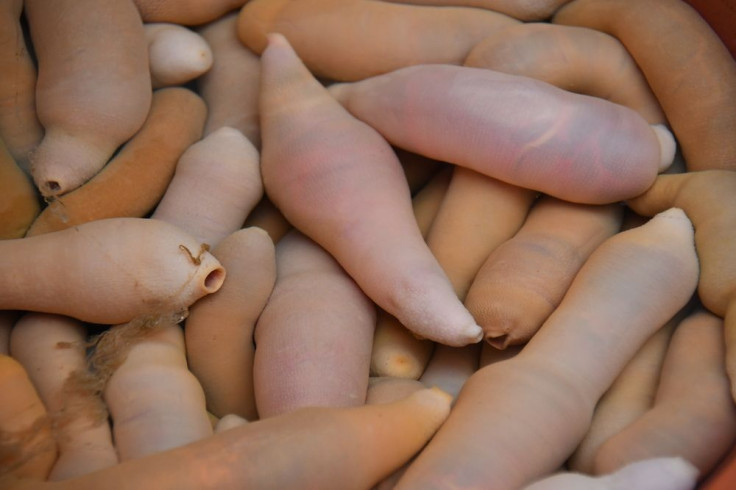
On December 6, biologist Ivan Parr discovered a bunch of "penis-fish" on the shores of Drakes Beach, California—after a storm hit the sea. Known as fat innkeeper worms, these 10-inch echiura worms resemble sausages and creates U-shaped burrows that it leaves behind for other creatures to move in— hence earning the title of being an “innkeeper”.
These pudgy yet gentle worms possess a spatula-shaped limb, which does double duty—to both feed and swim. The worm itself reaches around 20cm (eight inches) long but their burrows can be several feet deep. It pumps water into its burrow by waves of muscle contractions running down its body.
With a life expectancy of about 25 years; these fat innkeeper worms spend all their lives underground in the muddy parts of the seafloor. Bacteria, plankton and other minute particles are what they dine on, and these are captured with the help of “slime nets” that are consumed once enough food has been amassed.
Albeit unknown to most people, these innkeeper worms have been around for a really long time – experts trace their presence back to 300 million years. Colloquially, they are called “Penis fish” owing to their uncanny resemblance to the male genital.
These largely harmless and passive creatures are often at the risk of being attacked by predators— otters, shark seagulls, and humans. They have no teeth and are quite slow. These freaky little innkeepers are known to have a special flavor—those who’ve dined on this worm have termed it as "chewy, salty, and surprisingly sweet." Cooking it in a skewer with salt, pepper and sesame oil is one of the best-recommended ways to eat it.
Despite leaving millions dumbfounded, this isn’t a first occurrence of sorts. "The same phenomenon has been reported over the years at Pajaro Dunes, Moss Landing, Bodega Bay, and Princeton Harbor," said Parr in a media outlet. “I've heard my share of imaginative theories from beachcombers, such as flotsam of a wrecked bratwurst freighter. In truth, these are living denizens of our beaches rudely, yet also mercifully, mostly called 'fat innkeeper worms,” he added.
© 2025 Latin Times. All rights reserved. Do not reproduce without permission.




